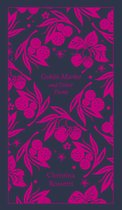Rossetti - Critics
Ray Cluley
(Forbidden Fruits: Sex and religion in ‘Goblin Market’)
• We recognise there is something unnatural about this abundance ‘all ripe together’ and as the
poem develops this hurried ripening of fruits can be likened to a rush into sexual maturity.
• The two are bound together by their relationship, as the closeness of their lines indicate.
• Referred to as ‘goblins’ as early as the second line, they are creatures outside of nature.
• It’s a sexual metaphor of often utilised in literature, the women giving of her body via a lock of
hair.
• Rossetti also denied ‘Goblin Market’ was a religious allegory […] Yet comparisons to The Fall
abound and the poem contains a wealth of biblical symbolism. Most obvious is the ‘fruit
forbidden’, the list beginning signi cantly with an apple.
• She is a re-gendered Christ gure in su ering for her sister, standing against the goblins kicking
and mauling, refusing to ‘open lip from lip’, keeping her innocence intact.
• From a reader’s perspective the religious meaning is clear: Rossetti has used ‘Goblin Market’ to
retell the story of the Fall, depicting Laura as a redeemable Eve whilst goblin men embody the
serpent.
• Rossetti’s lasting message seems to be an appeal to support women who have succumbed to
such desires.
• Showing that, although men may be absent from the poem, the patriarchal system to which the
women belong is not.
Alice Kirby
(Christina Rossetti: Proto-Feminist Poet?)
• She may choose conventional forms […] but what she does with them is unusual, challenging
some of the givens of Victorian poetry and thought.
• The poem can be read as an allegory for a woman trying to transcend the boundaries placed
upon her by society. Laura is exploring her own identity beyond the domestic sphere. The
goblins, therefore, represent the perceived danger of a woman neglecting her responsibilities to
pursue other, forbidden, roles. Once Laura has tasted the Goblin fruits she “No more swept the
house // Tended the fowls or cows…”
• This could be read as a return to conventional Victorian values, a very ordinary ending to an
otherwise, arguably, subversive text. However, the continued absence of men […] may suggest
something di erent.
Suzanne Williams
(‘In The Round Tower At Jhansi’ June 8: A Postcolonial and Feminist Reading)
• Accounts suggest that all the Europeans at the siege surrendered, having been falsely assured
of their safety, and were then in fact brutally massacred.
• Rossetti creates a very conventional pairing. The husband is protector and the wife is
infantilised as women frequently, in fact usually, are in much Victorian literature. He is strong […]
and asserts ownership ‘no mine own’.
ff fi fi ff





